An all-around solution to take care of your data recovery
A single product suited to different types of storages
-
 PC/laptop
PC/laptop -
 Mobile device
Mobile device -
 USB flash drive
USB flash drive -
 Memory card
Memory card -
 Hard drive
Hard drive -
 RAID
RAID
And numerous data loss incidents they get affected by
-
 Deleted folders
Deleted folders
and files -
 Formatted
Formatted
volumes -
 File system
File system
corruption -
 OS-related
OS-related
problems -
 Errors caused
Errors caused
by software -
 Physical
Physical
damage
Restore the missing files
with maximum results and minimum effort



clips

tracks


formats
No matter how complex the task ahead is
There is a utility that responds to your particular issue
cases
tasks
instances
Professional-grade efficiency coupled with simplicity
Get the most out of your DIY data recovery procedure

Intelligent reconstruction techniques
Recovery Explorer is able to find lost partitions, restore damaged file systems and locate the missing data using sophisticated recovery algorithms that are equal to ones available in purely professional software products.

Useful additional functionality
Equipped with various supplementary options, the software makes the recovery process efficient and smooth: you can assess the state of the data and its size, run quick or advanced search, preview files, sort or filter them by chosen criteria.

Friendly and straightforward interface
The program’s interface is fit for use by experts and persons with basic skills alike. Advanced users will find it convenient for solving their regular tasks, whereas novices can switch to the Wizard-based mode to make the usage absolutely elementary.
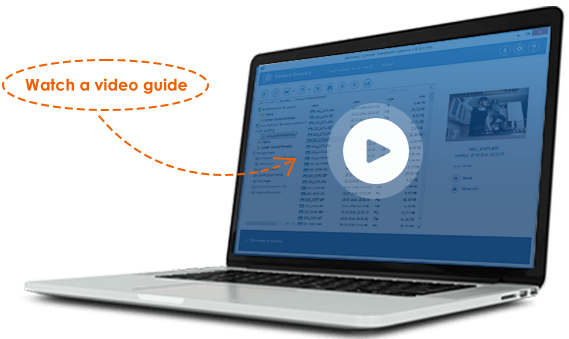
Cope with the trickiest cases of data loss

A broad range of supported file systems
- Windows: FAT/FAT32/exFAT, NTFS, ReFS/ReFS3
- macOS: HFS+, APFS
- Linux: Ext2/Ext3/Ext4, XFS, Btrfs, F2FS, ReiserFS, JFS
- BSD/Solaris: UFS/UFS2, big-endian UFS, ZFS
- VMware: VMFS, VMFS6

Data recovery from RAID of various setups
- Standard RAID levels: RAID 0, RAID 1, RAID 1E, RAID 3, RAID 4, RAID 5, RAID 6, etc.
- Nested configurations: RAID 10, RAID 50, RAID 60, etc.
- Non-standard layouts: Drobo BeyondRAID, Synology Hybrid RAID, ZFS RAID-Z, Btrfs-RAID, OpenBSD softraid, etc.
- Custom RAID: defined manually via the RAID Definition Language (RDL)
Great diversity of supported storage technologies
- Windows Dynamic Disks
- Storage Spaces
- NTFS/ReFS Data Deduplication
- BitLocker
- Apple Software RAID
- Fusion Drive
- FileVault 2
- APFS encryption
- mdadm
- LVM with Thin Provisioning
- LUKS
- TrueCrypt/VeraCrypt
- eCryptfs
- VMware
- Hyper-V
- QEMU
- XEN
- VirtualBox
- Parallels
- Drobo BeyondRAID
- Synology Hybrid RAID
- WD My Cloud
- ZFS RAID-Z
- Btrfs-RAID
- OpenBSD softraid
- Intel Optane Memory
- Drobo mSATA cache
An advanced toolkit geared towards challenging data recovery scenarios
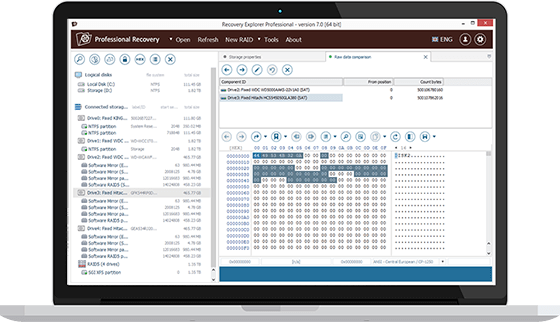
- Controlled reading of drives and saving of the accessed data
- Hexadecimal viewer with a data interpreter and structure templates
- Storage content comparison, parallel search and parity calculator
- Reverse address translation for tracing allocation of the data
- Hexadecimal editor with a number of auxiliary options
- A tool for monitoring the S.M.A.R.T. status of drives
Software editions for cases of different complexity
Each supplemented with an individual combination of functions and features
Choose an application that fits your data recovery needs

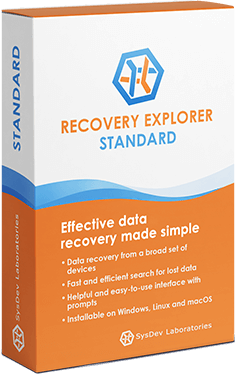
- Work with the file systems of Windows, macOS and Linux
- Data recovery from simple physical storages of various types
- Support for popular disk image and virtual disk formats
- Discovery and virtual reconstruction of the missing partitions
- Various additional possibilities (search, preview, filters, etc.)
- Prior assessment of the condition of recovered files
- Optional simplified mode based on a “Wizard”
- Useful recommendations at each step of the process


- All functions presented in the Standard edition
- Specialized toolkit for work with RAID storages
- Instant detection of RAID sets and their assembly
- Perfect for RAID-based servers, DAS and NAS units
- Support for standard, nested, custom RAID patterns
- Additional tools assisting in the analysis of RAID layout
- Support for Storage Spaces, LDM, LVM, mdadm, etc.
- Data recovery from Synology SHR, Btrfs-RAID, OpenBSD softraid


- Coverage of the major features available in the Standard and RAID editions
- Expanded spectrum of supported file system types
- Embedded decryption techniques for encrypted storages
- Data recovery from Drobo BeyondRAID, ZFS RAID-Z
- Substantial set of processed composite volumes
- Opening virtual disks and images directly from the file system
- Configurable procedure for saving the recovered data
- Set of means for efficient content analysis and modification
Multiple licensing options
Get an optimal license in accordance with the intended use

 Commercial
Commercial Corporate
Corporate
 Commercial
Commercial Corporate
Corporate
 Commercial
Commercial Corporate
CorporateThe details related to the usage of different types of licenses are described in the End-User License Agreement.
Try out any feature absolutely free of charge
Download a free trial version to test the effectiveness of the application
System requirements
It is strongly recommended to use the free version of the data recovery software before purchasing a license. The program can be installed on Microsoft Windows (from XP with Service Pack 3), macOS (version 11 and above) or most modern Linux distributions and is compatible with the Intel 32-bit (IA-32, x86), Apple Silicon (arm64) and AMD64 (x86-64) host CPU architectures. The bare minimum required to run the software is at least 20 MB of free space on the drive and 1 GB of RAM. The most suitable configuration is a 64-bit edition of the supported host operating system, over 1 GB of free space, at least 2 GB of RAM and 4 logical cores CPU.
Popular questions
Is the use of Recovery Explorer absolutely safe for my storage device and the data on it?
How do I make a choice between the editions of Recovery Explorer?
Where can I see the technical specifications of Recovery Explorer and its help documentation?
Is it possible to test the application before ordering a license?
What should I do to install the software?
How can I purchase and apply a license for the program?
Watch video guides and learn more

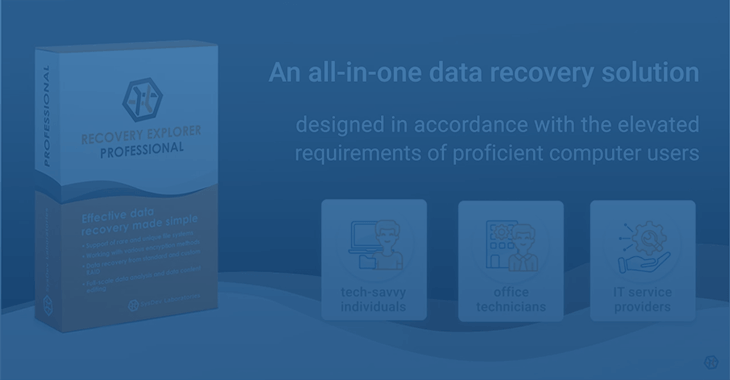
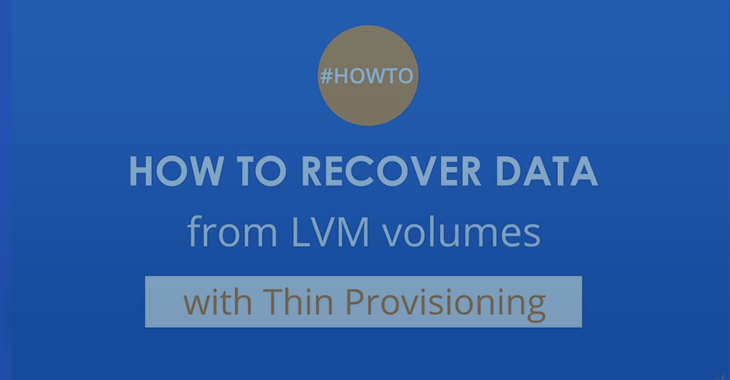
If you have other questions, please don’t hesitate to reach out to our support team.



